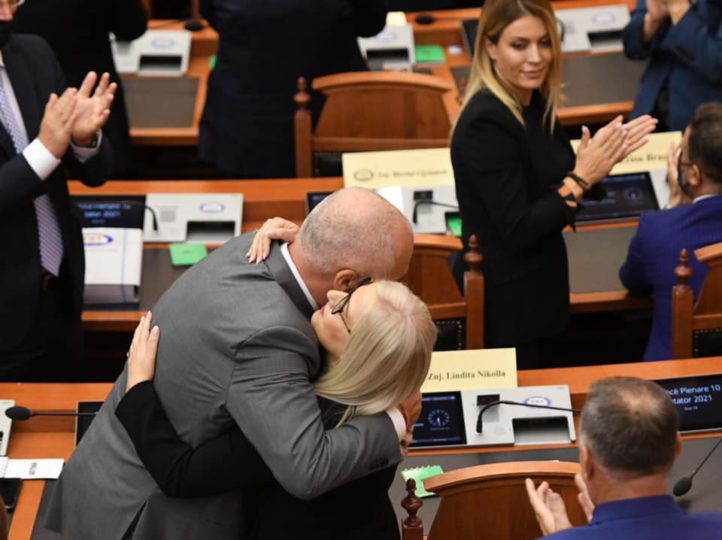
In a move that will raise eyebrows and tempers, the Albanian government’s recent initiative to establish a special commission purportedly aimed at combating disinformation and foreign interference, specifically from Russia, stands as a stark testament to the creeping tendrils of authoritarianism seeking to strangle the last vestiges of free speech in the country. Spearheaded by Lindita Nikolla, the Speaker of the Parliament, this commission represents a thinly veiled attempt to exert governmental control over the digital discourse, marking a dangerous pivot towards Orwellian oversight.
At first glance, the premise might seem commendable, or at least benign. In an era rife with misinformation and cyber manipulation, who wouldn’t want to shield the democratic process from foreign subterfuge? Yet, a closer inspection reveals a disconcerting reality: this commission is less a shield to protect democracy and more a sword to slash through the fabric of free expression. Critics argue, and not without merit, that the establishment of such a body under the guise of national security conveniently aligns with the government’s longstanding ambition to muzzle dissenting voices and consolidate its grip on power.
Albania, a beacon of resilience against external propaganda in the Balkan region, according to international reports, now seems poised to undermine its own democracy from within. The proposal to monitor and regulate online platforms and social networks—a domain that remains the last bastion of unbridled public discourse in the country—signals a distressing intent to police thought and speech. Under the pretext of combating disinformation, the commission is empowered to scrutinize content, a mandate that ominously includes the authority to shut down accounts engaging in “inauthentic coordinated behavior” or activities deemed illegal that might undermine democratic processes or incite hate speech.
This maneuver is emblematic of a broader, more insidious trend where governments, under the banner of national security or public interest, encroach upon civil liberties. The specter of Russian interference, while a legitimate concern in certain contexts, is wielded all too conveniently here, given the lack of concrete evidence suggesting significant Russian influence in Albania. It begs the question: is the specter of foreign interference being exploited as a Trojan horse to justify the curtailment of free speech?
The establishment of such a commission without meaningful public consultation or transparency only compounds these concerns. It is a unilateral move that seems to bypass the very democratic principles it purports to protect. Moreover, the broad and vaguely defined powers of this commission open the door to subjective interpretation and enforcement, laying the groundwork for potential abuse.
Freedom of speech and the press are the cornerstones of any democracy. They enable public discourse, accountability, and the exchange of ideas necessary for societal progress and governance. When a government takes steps to curtail these freedoms, it not only betrays its commitment to democratic values but also undermines the trust and confidence of its citizens and the international community.
As Albania teeters on the edge of this slippery slope, it is imperative for the international community, civil society, and all stakeholders committed to democratic ideals to voice their opposition and demand transparency, accountability, and the preservation of free speech. The path Albania chooses to walk will not only determine the fate of its democracy but also serve as a litmus test for the resilience of democratic values in the face of growing authoritarian temptations worldwide.
